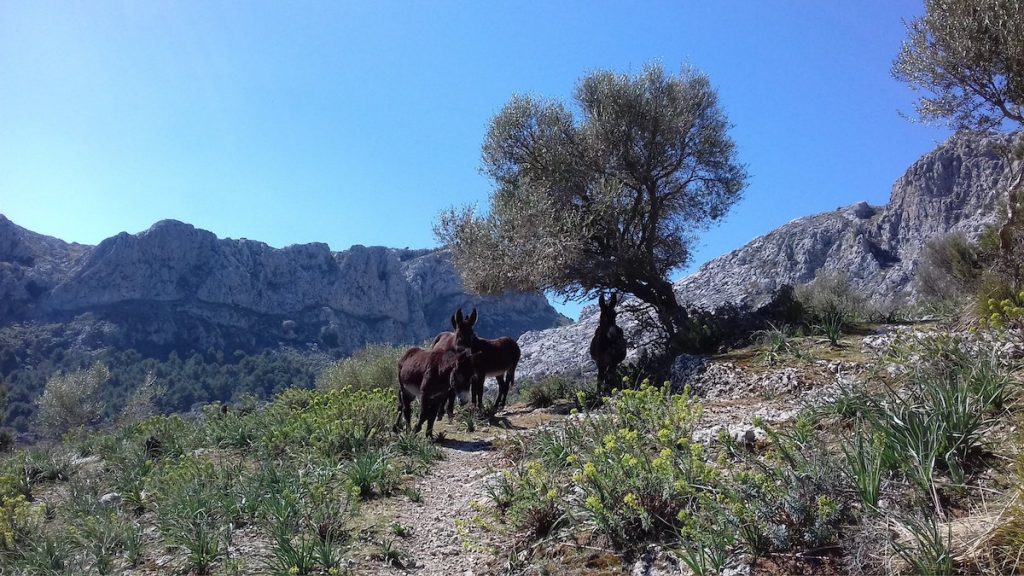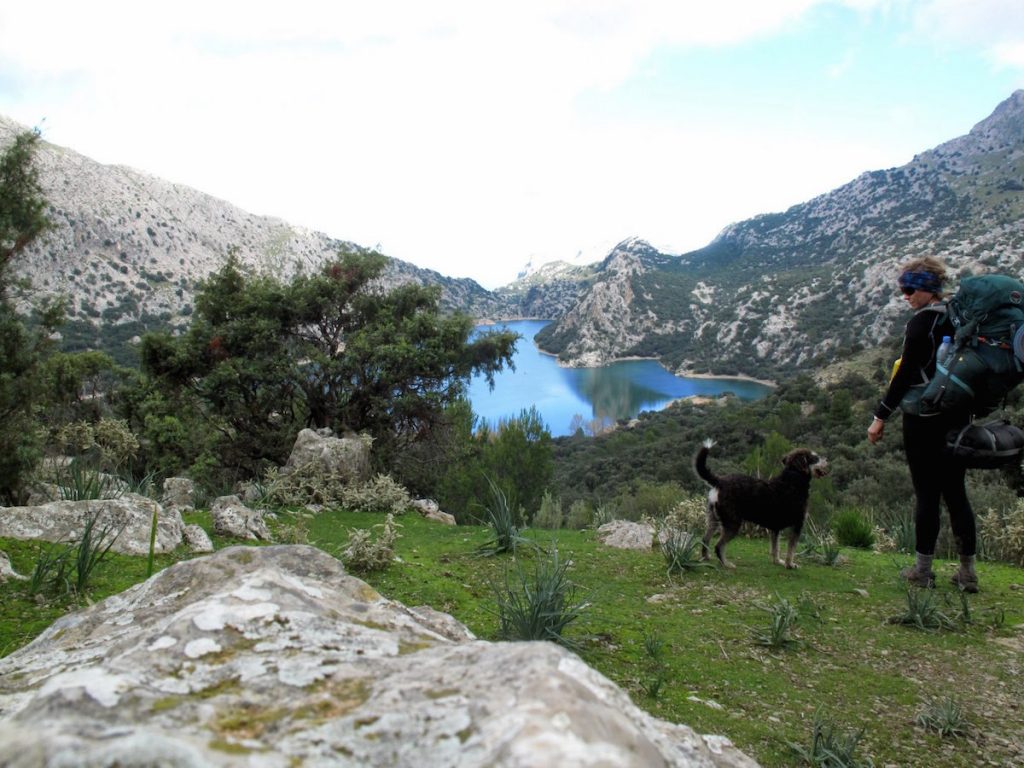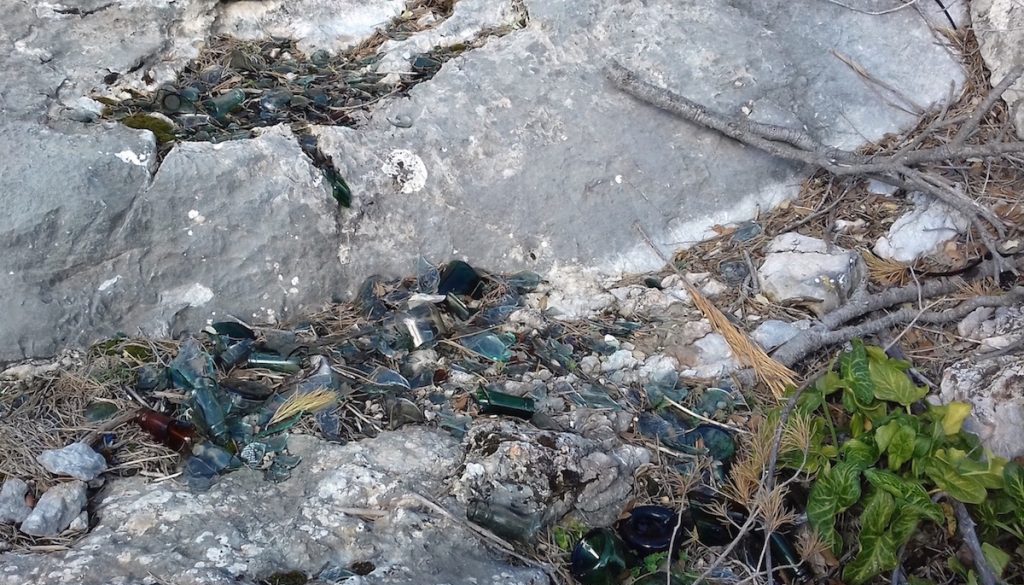•Eco – guilt
Eco-guilt
How can cultivating our conscience make us environmentally responsible?
On a walk in the Serra de Tramuntana last week, our group happened upon some game hunters’ hideouts- or what looked like a rave scene; the place was strewn with broken bottles, plastic chairs, old tarpaulins and rope. Surely if you can carry all those full wine bottles almost 1000-m up a mountain, you must be fit enough to carry them down again empty? Perhaps their bags were too full of dead birds. Once recovered from the initial disgust, I began to wonder if there was not an element of social pressure involved in littering…these shameless people perhaps didn’t feel the need to dispose of their rubbish, because who would ever see It or find out up there? Why don’t we see (quite so many) piles of broken bottles in well-frequented areas? Probably because with no one around to see the littering, there is no one to hold offenders accountable for their actions. Would people be ashamed if caught? The definitions of shame and ashamed; suffering from feelings of inferiority, fear of humiliation, awareness of having done something dishonourable, show how our social behaviour is subject to scrutiny by others. This gives us power to influence those with an irresponsible conscience. So let’s speak up when we see our planet being spoiled, after all, there’s a slight chance that litterbugs never even question their behaviour, and our mentioning it may strike a chord within their minds. Just watch they don’t lob a bottle at you (also been known to happen!).
Apparently all our actions stem from egoistic self-interests; those of us who ride bikes (allegedly “doing our bit for the planet”) primarily ride because it gives us a chance to exercise, get some fresh air, and save on fuel. It is argued that “responsible” do-gooders enjoy holding other people accountable partially to garner self-recognition or praise from fellow humans, others may adopt eco-friendly measures simply because they are fashionable, or marketable. Again it narrows down to how we feel, or how we think we will feel; anticipated emotions influence our decisions so that we choose feel-good options. Conversely, guilt is an emotion that stems from our self-evaluation of whether or not we are conforming to social and personal standards. All examples of how peer-pressure can lead to a happier mother nature! I’m sure that the environment doesn’t care which motives are driving our actions.

Early campaigns to promote environmental awareness (1970s) assumed that people would take environmental action once they had the knowledge to do so, yet the ability to act depends on peoples’ personal situations, resources (can I afford a bike? Is there a public bus or a recycling point? ). Most people agree that the environment should be cared for, even in the poorest countries, where litter usually just goes straight out of the window. The western nations still pollute far more than poor countries, due to our wasteful lifestyle, where we have come to rely on so many potentially polluting disposable commodities. This highlights the fact that information is not enough, and that legislation CAN and DOES drive instant behavioural changes. Take, for example, the 2015 UK plastic bag levy resulting in an 80% drop in bag usage in a year. Countries with high fuel taxes drive less.

Having had great childhood outdoor experiences is the strongest factor influencing adults’ decisions to become environmentalists and it has been shown that people who are emotionally attached to nature are more likely to care for it. It’s also true that we are more likely to worry about things in our own back yard, so let’s get outside and explore our natural surroundings, so that we will learn to love and care for them.
One thing is knowing what to do, how to help the environment, and another thing is actually doing it. So what’s stopping us? It’s important to acknowledge the inherent risk in bombarding one another with guilt fuelling recriminations. The risk is that readers may end up downright bored of hearing about eco this and eco that. When exposed to environmental degradation some of us become emotionally distressed, which may in turn lead to psychological defense mechanisms such as denial, rational distancing, apathy and resignation. As informed as we are, a feeling of overwhelming helplessness in the face of too much negativity will very often prevent us from taking pro-environmental action. This has enormous repercussions, because, while knowing about the negative consequences of our non-friendly actions CAN make us feel responsible and adjust our behavior, we become desensitized and prioritize other aspects of our busy lives. The belief that each individual act does make a difference is the primary motivator for environmentally friendly action. In cases where we don’t believe we have the power to change things, government legislation can intervene and force us to act regardless of ones’ perceived effectiveness of their actions.

My hope is that by becoming aware of the positive outcomes of our actions, we will feel compelled to make more responsible choices. Successful campaigns now focus on specific examples of positive reinforcement; 7 recycled cans make a car, etc., It seems that the best combination to motivate an environmentally pro-active society would be a little knowledge (what the problem is and HOW we can help), a little legislation (and enforcement!) and a lot of direct experience of nature from an early age so that we feel emotionally connected to it. Ideally, we will learn that caring for the environment will make us feel proud, good, and less guilty, and we will be able to relate our positive emotions (cultivated through knowledge, peer pressure, personal awareness) to making more sustainable choices.


